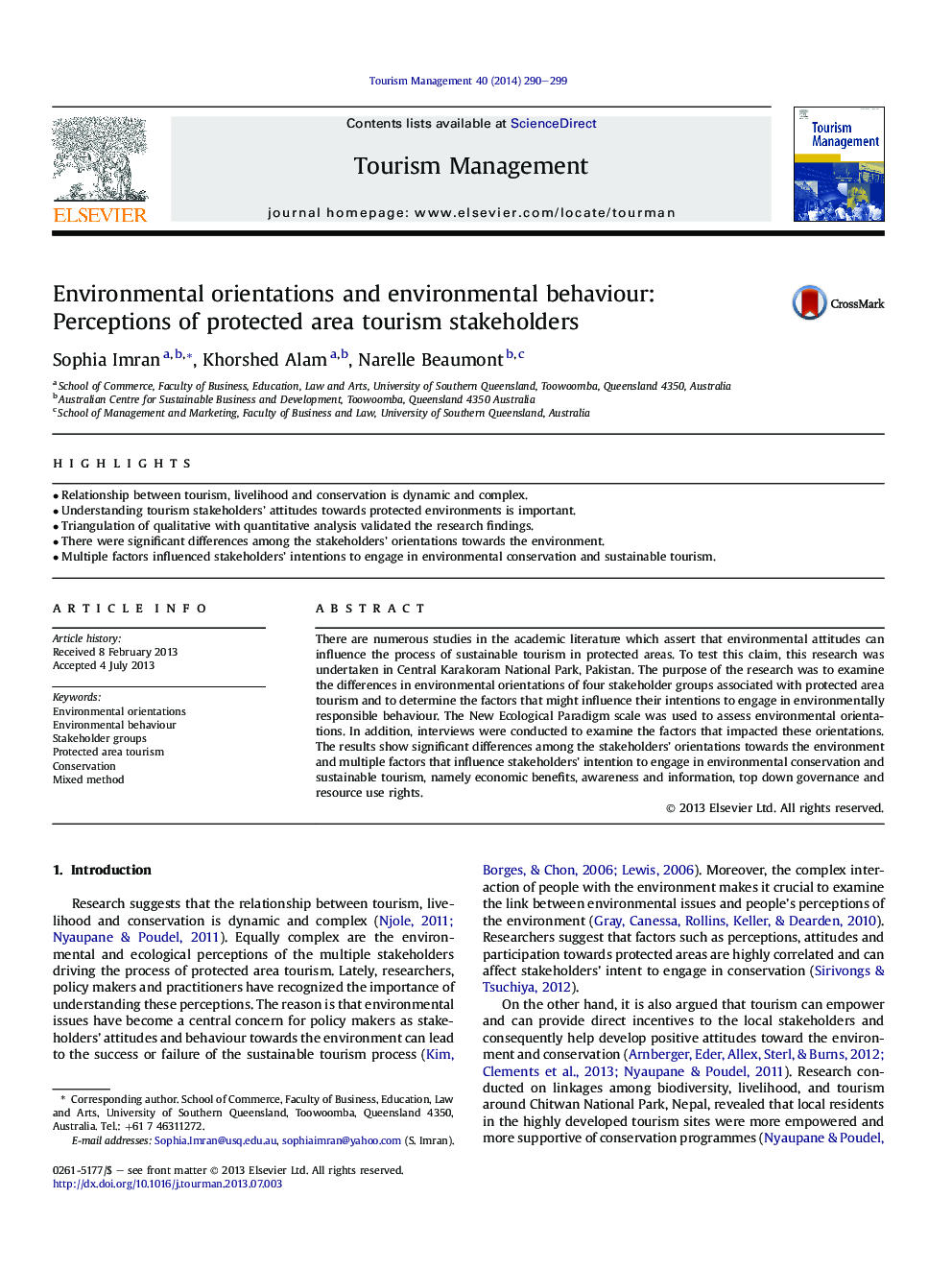| Article ID | Journal | Published Year | Pages | File Type |
|---|---|---|---|---|
| 7422338 | Tourism Management | 2014 | 10 Pages |
Abstract
There are numerous studies in the academic literature which assert that environmental attitudes can influence the process of sustainable tourism in protected areas. To test this claim, this research was undertaken in Central Karakoram National Park, Pakistan. The purpose of the research was to examine the differences in environmental orientations of four stakeholder groups associated with protected area tourism and to determine the factors that might influence their intentions to engage in environmentally responsible behaviour. The New Ecological Paradigm scale was used to assess environmental orientations. In addition, interviews were conducted to examine the factors that impacted these orientations. The results show significant differences among the stakeholders' orientations towards the environment and multiple factors that influence stakeholders' intention to engage in environmental conservation and sustainable tourism, namely economic benefits, awareness and information, top down governance and resource use rights.
Related Topics
Social Sciences and Humanities
Business, Management and Accounting
Strategy and Management
Authors
Sophia Imran, Khorshed Alam, Narelle Beaumont,
